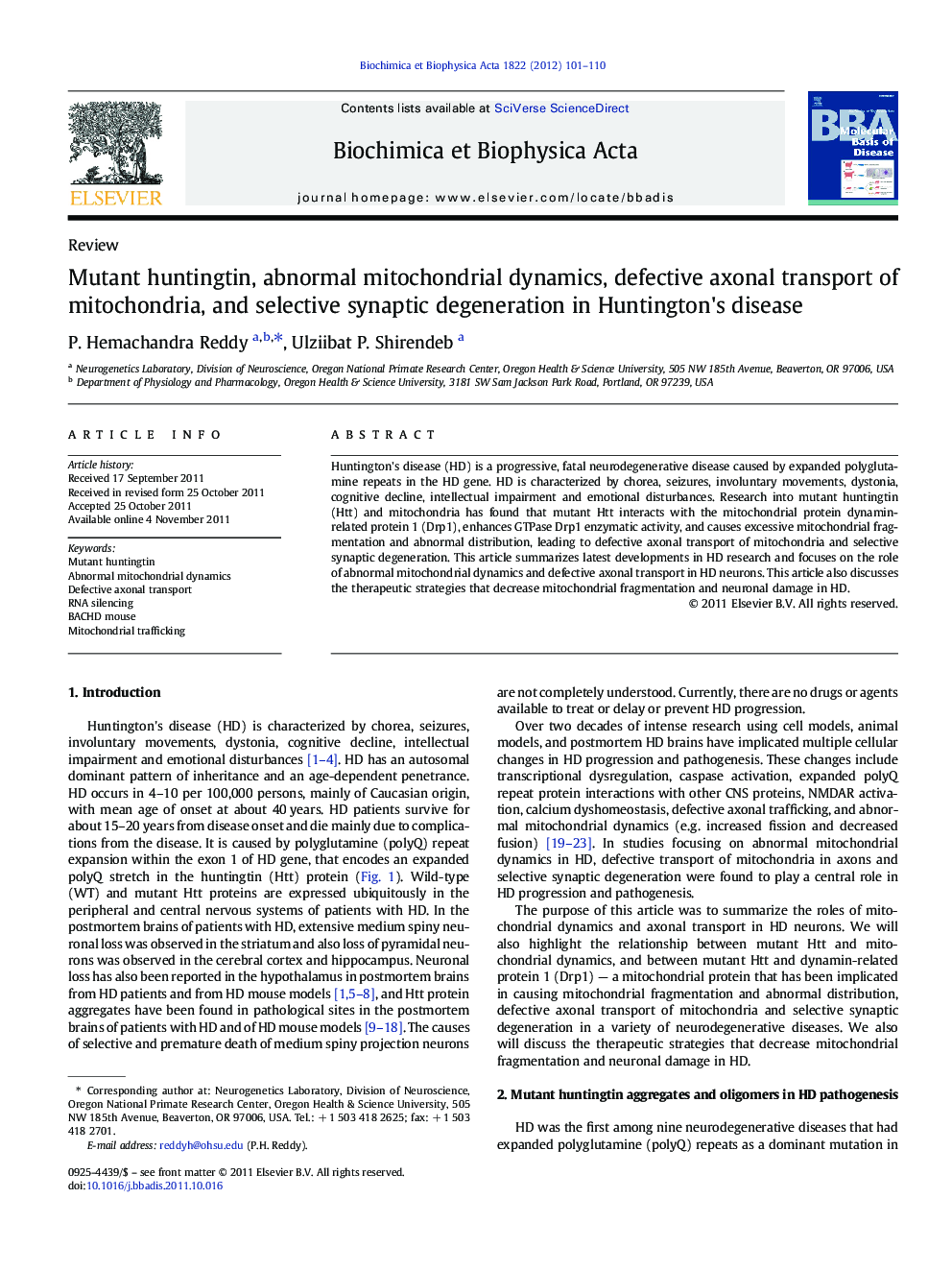| Article ID | Journal | Published Year | Pages | File Type |
|---|---|---|---|---|
| 1905014 | Biochimica et Biophysica Acta (BBA) - Molecular Basis of Disease | 2012 | 10 Pages |
Huntington's disease (HD) is a progressive, fatal neurodegenerative disease caused by expanded polyglutamine repeats in the HD gene. HD is characterized by chorea, seizures, involuntary movements, dystonia, cognitive decline, intellectual impairment and emotional disturbances. Research into mutant huntingtin (Htt) and mitochondria has found that mutant Htt interacts with the mitochondrial protein dynamin-related protein 1 (Drp1), enhances GTPase Drp1 enzymatic activity, and causes excessive mitochondrial fragmentation and abnormal distribution, leading to defective axonal transport of mitochondria and selective synaptic degeneration. This article summarizes latest developments in HD research and focuses on the role of abnormal mitochondrial dynamics and defective axonal transport in HD neurons. This article also discusses the therapeutic strategies that decrease mitochondrial fragmentation and neuronal damage in HD.
► Summarized the link between mutant Htt and mitochondrial dynamics in Huntington's disease. ► Discussed mutant Htt interaction with Drp1 in Huntington's disease neurons. ► Highlighted possible factors of defective axonal transport in Huntington's disease neurons. ► Discussed the therapeutic approaches for Huntington's disease.
